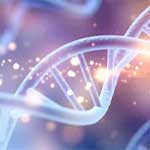B cells are lymphocytes that are part of the adaptive humoral immune system and are best known for their ability to produce antigen-specific antibodies. B cells express B cell receptors (BCRs) on their cell surface that allow for antigen binding, against which it will initiate an antibody response. The ‘B’ in B cells was actually named for the bursa of Fabricius in birds, not bone marrow as commonly believed based on the initial landmark animal studies performed in chickens that led to the discovery of these cells1.
In addition to producing antibodies, B cells play important roles in mediating cellular immunity through generating immunological memory, antigen presentation to enhance T-cell responses, and the production of immunomodulatory cytokines1,2. Figure 1 outlines the main B cell functions.

B CELL DEVELOPMENT
In adults, B cells arise from common lymphoid progenitors of hematopoietic stem cells in the bone marrow, which also give rise to T and NK cells. The B cells progress through sequential maturation steps within the bone marrow to produce B cells that express a unique BCR, which is composed of two identical heavy chain proteins and two identical light chain proteins. V(D)J recombination within the immunoglobulin H (heavy) and L (light) chain gene loci at the pro-B and pre-B stages (respectively), results in the generation of unique amino acid sequences in the antigen-binding to create a vast repertoire of unique BCRs capable of recognizing a broad diversity of antigens from pathogens to “altered self” like tumor cells2. Once a developing B cell expresses a correctly assembled BCR on its cell surface that is confirmed to be non-self-reactive, the IgM+ immature B cell exits the bone marrow, enters the blood, and migrates to the spleen1-3. Within the spleen, the B cells undergo further development and differentiation into mature naive B cells that circulate in the body.
Upon antigen activation, conventional B cells, also known as B-2 cells, terminally differentiate into antibody-producing plasma cells and memory B cells in secondary lymphoid tissues, such as the spleen and lymph nodes. Activated B cells undergo a period of rapid proliferation and somatic BCR hypermutation (BCR diversification) to select B cell clones that produce antibodies with a high affinity for that particular antigen3. Once terminally differentiated, the plasma B cell only secretes antibodies specific for that antigen and can no longer generate antibodies to other antigens. Mature B cells express IgM and the key cell surface markers CD19, CD20, and CD222.
ANTIBODY PRODUCTION
The ability of B cells to produce antigen-specific monoclonal antibodies (mAb) has been exploited by the biopharmaceutical industry for decades and are the largest class of biomedicines to treat a wide range of diseases. B cell clones whose antibodies recognize one unique epitope or antigen are isolated and immortalized through fusion with myeloma cells to form hybridomas3. These hybridoma cells can be expanded indefinitely to generate vast quantities of a specific mAb for therapeutic use. However, there has been considerable interest in developing alternate strategies to deliver mAb since their production and storage are expensive and patients often need redosing for long-term effectiveness4.
Notably, a research group from the Fred Hutchinson Cancer Research Center has developed a method using CRISPR gene editing to reprogram human B cells to produce a monoclonal antibody palivizumab, used to treat respiratory syncytial virus (RSV) and other viruses4. The current standard of treatment involves repeated, monthly rounds of palivizumab infusions. To provide more long-term protection, CRISPR was used to insert the gene encoding palivizumab into human B cells such that the engineered B cells could produce palivizumab when activated by RSV antigens. In animal studies, a single injection of the engineered B cells expressing RSV-specific antibodies into mice lacking T and B cells was able to impart long-term protection against the virus, through the generation of plasma and memory B cells that retained immunological memory of the virus. This technology opens up the possibility of using engineered B cells as therapeutics in humans against not just viruses, but other diseases as well4,5.
BEYOND ANTIBODY PRODUCTION
1) Antigen Presentation
Antigen-presenting cells (APCs) are essential for the body to mount an effective adaptive immune response since the activation of both cytotoxic (CD8+) and helper T (CD4+) cells is based on antigen presentation through MHC cell surface molecules on APCs. B cells are potent APCs, able to process foreign antigens through receptor-mediated endocytosis. The peptide fragments bound to MHC class II molecules are displayed on their cell surface and presented to CD4+ TH cells6,7. CD40L on the TH cell surface can bind to CD40 on B cells enabling increased clustering and multimerization of the receptors, which activates a signaling cascade within the B cell to drive events such as antibody isotype switching, affinity maturation, as well as differentiation into effector plasma cells and memory B cells to establish long-term immunological memory6,7.
Efforts are being made to exploit the potent CD40/CD40L pathway where immunostimulatory CD40 B cells primed with specific tumor antigens could be used as a cellular cancer vaccine to stimulate T cell-mediated responses against cancer cells. Currently, there are limited clinical studies examining the potential of B cell-based immunotherapies but animal studies have shown promising results8.
2) Cytokine Production
B cells are able to modulate the immune response through the production of pro-inflammatory and anti-inflammatory cytokines. B cells activation by TH cells through CD40L and BCR signaling produce pro-inflammatory cytokines including TNF-α, GM-CSF, LTα, and IL-6 that can amplify effector T cell responses in a cytokine-dependent manner9,10. Conversely, some B cells called Bregs, produce immunosuppressive cytokine IL-10 or TGFβ-1 that actively suppress immune responses that can arise from aberrant T cells, as an example, to maintain immunological homeostasis9-11. This balance of pro-and anti-inflammatory cytokines is implicated in the development of autoimmune diseases. For example, the B cell cytokine balance is altered in patients with multiple sclerosis (MS), where they produce significantly less IL-10 than B cells from healthy individuals10.
It is evident that B cells are more than just antibody-producers – they are an integral component and regulatory of the adaptive immune system. As their immunomodulatory role in antigen presentation and cytokine production becomes clearer, this knowledge will help drive new insight to aid in the design of next-generation B cell-targeted therapies.
ALLCELLS B CELL PORTFOLIO
AllCells offers B cells isolated from leukapheresis enriched in peripheral blood mononuclear cells (PBMCs) collected from healthy and consenting donors at our FDA-registered facilities to drive your B cell research. Leukopaks typically contain up to 50% T cells, 20% monocytes, 10% B cells, 10% NK cells, and 3% granulocytes (donor-dependent). B cells isolated from mononuclear cell populations via positive or negative immunomagnetic separation are available:

For more information on B cells or any of our other products, please contact orders@allcells.com
REFERENCES
- Cooper MD. The early history of B cells. Nat Rev Immunol. 2015;15(3):191-197. doi:10.1038/nri3801
- LeBien TW, Tedder TF. B lymphocytes: how they develop and function. Blood. 2008;112(5):1570-1580. doi:10.1182/blood-2008-02-078071
- Hoffman W, Lakkis FG, Chalasani G. B Cells, Antibodies, and More. Clin J Am Soc Nephrol. 2016;11(1):137-154. doi:10.2215/CJN.09430915
- Moffett HF, Harms CK, Fitzpatrick KS, Tooley MR, Boonyaratanakornkit J, Taylor JJ. B cells engineered to express pathogen-specific antibodies protect against infection. Sci Immunol. 2019;4(35):eaax0644. doi:10.1126/sciimmunol.aax0644
- Ueda N, Cahen M, Danger Y, Moreaux J, Sirac C, Cogné M. Immunotherapy perspectives in the new era of B-cell editing. Blood Adv. 2021;5(6):1770-1779. doi:10.1182/bloodadvances.2020003792
- Marasco E, Farroni C, Cascioli S, et al. B-cell activation with CD40L or CpG measures the function of B-cell subsets and identifies specific defects in immunodeficient patients. Eur J Immunol. 2017;47(1):131-143. doi:10.1002/eji.201646574
- Hong S, Zhang Z, Liu H, et al. B Cells Are the Dominant Antigen-Presenting Cells that Activate Naive CD4+ T Cells upon Immunization with a Virus-Derived Nanoparticle Antigen. Immunity. 2018;49(4):695-708.e4. doi:10.1016/j.immuni.2018.08.012
- Wennhold K, Shimabukuro-Vornhagen A, von Bergwelt-Baildon M. B Cell-Based Cancer Immunotherapy. Transfus Med Hemother. 2019;46(1):36-46. doi:10.1159/000496166
- Lund FE. Cytokine-producing B lymphocytes-key regulators of immunity. Curr Opin Immunol. 2008;20(3):332-338. doi:10.1016/j.coi.2008.03.003
- Vazquez MI, Catalan-Dibene J, Zlotnik A. B cells responses and cytokine production are regulated by their immune microenvironment. Cytokine. 2015;74(2):318-326. doi:10.1016/j.cyto.2015.02.007
- Cyster JG, Allen CDC. B Cell Responses: Cell Interaction Dynamics and Decisions. Cell. 2019;177(3):524-540. doi:10.1016/j.cell.2019.03.016




